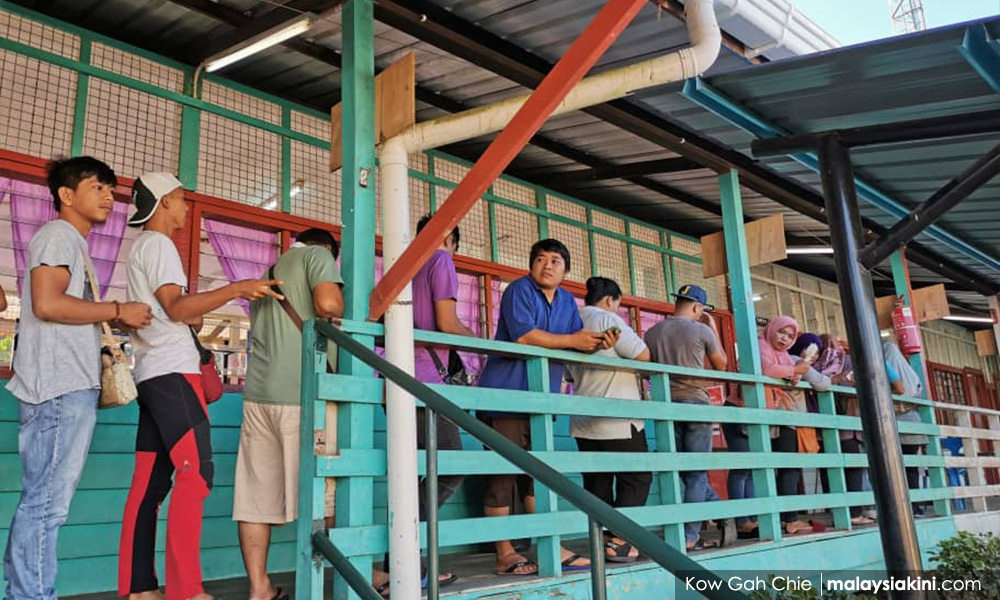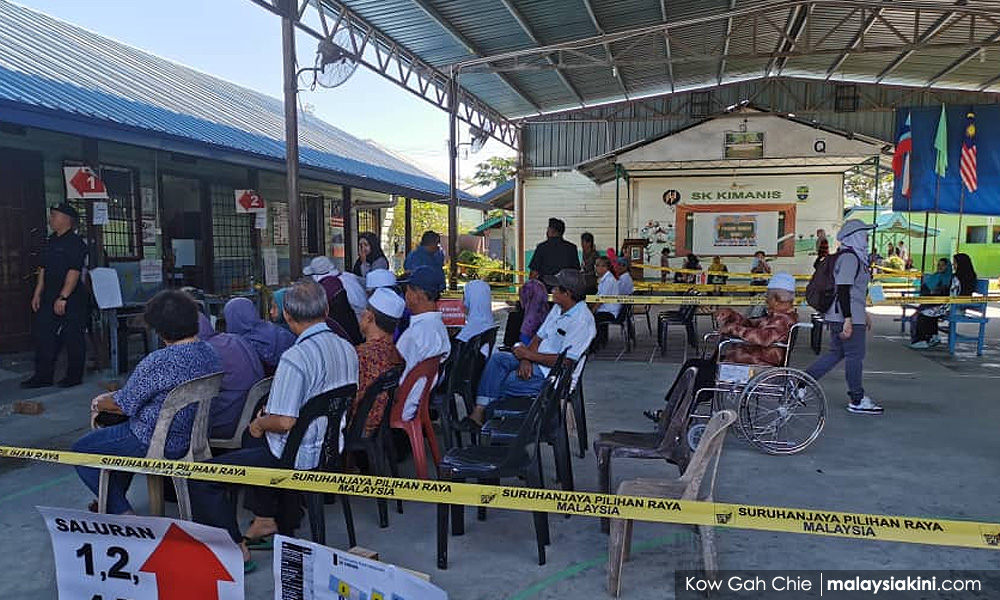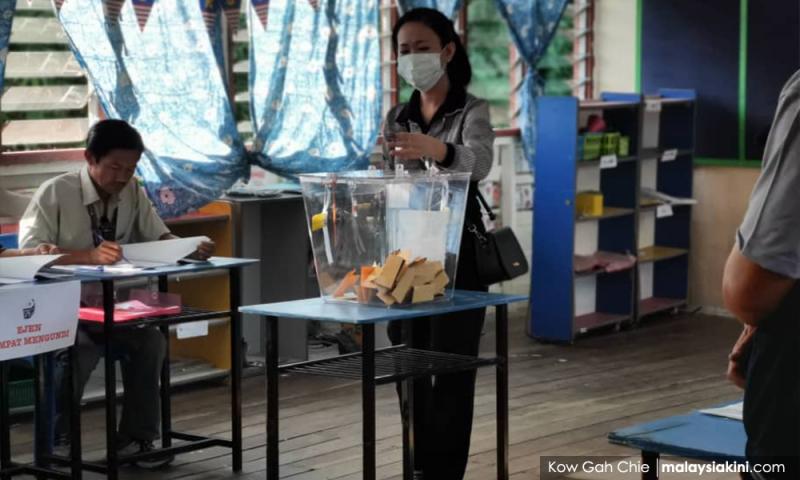LETTER | Sabahans want change, make voting easy
LETTER | It’s easy to assume what we Sabahans want.
For many years we are left behind, slow developments of infrastructure, bickering politicians that love to switch parties like mood swings – almost everyone knows this.
The people of Sabah have the power to change but they keep making the wrong decisions and I wanted to understand why.
During my recent trip to Sabah, I took the opportunity to chat with the locals to understand their take on the upcoming 15th general election.
Frankly, understanding the locals’ struggle, experience, and thoughts were crucial as I have not spent many days in Sabah in the last two years due to the pandemic.
Some of the responses I’ve got:
“Siurang undi KDMR (Kadazan, Dusun, Murut) sija sebab sebangsa. Kalau sebangsa, kami tau diorang jaga hak hak kami dan itu adat nenek moyang…”
“Kalau undi parti lokal tapi bukan KDMR, nanti dia lindung tu PTI (pendatang tanpa izin) macam mana?”
“Nanti tukar lagi tu kerajaan… balik2 mau undi lagi… fed up oh! Sudah cantik tu pilihan kami itu hari, suka suka pigi tukar pigi GRS (Gabungan Rakyat Sabah). Ingat kami mesin duit kah senang-senang balik pigi undi?”
(“I only vote for KDMR because we’re of the same ethnicity. If we’re the same race, we know that they’ll protect our rights, that’s the custom of our ancestors.”
“If we voted for a local party but they’re not KDMR, they may protect illegal migrants instead, what then?”
“What if they change the government again and we have to go back to vote again? I’m fed up. We made our choices that day, but they changed to GRS on a whim. Do they think we’re money-printing machines who can easily go home to cast our vote?”)
Mentality and trust
The first few things that popped up in my mind upon hearing this is about mentality and trust.
Mentality because the locals, especially the rural people, are made to believe that only KDMR local parties can protect their “rights” because they speak the same language and share the same culture. Hence, the need to prove and show them that this is not true is important.
There is also the need to address their concerns on illegal migrants. It must be drummed into their heads regularly, if not daily, to uncover the truth of the matter, or better still, share facts in terms of reports, numbers, anything that proves otherwise.
Trust must also be instilled on the first 100 days of the new cabinet appointment that every single decision that the state government makes is not only people-centric but also transparent in communicating the rolling out process.

During the many conversations, I have also compiled the followings;
1. Sabahans are fed up with the empty promises made by politicians before the elections, and feel that the existing (state) government has failed to protect their welfare/rights.
I have explained to them that this is because most of those promises are tied to allocation of funds that Sabah usually gets from the federal government and it is really up to the existing ministers to fight for those funds to fulfil their “promises”.
Unfortunately, Sabah gets very little budget every year although we have contributed more than enough revenue to the federal government. We literally have to “beg” for funds to get things moving.
2. Elected ministers were either too complacent with their roles that they did not fight hard enough or they were too busy playing “safe” to safeguard their position.
Almost all were aware of the sudden “appearances” of who’s who, with their sudden entourage of “outpouring help, assistance”, etc.
3. At least five of the seven Sabahans that I spoke to were aware of the Malaysia Agreement 1963 (MA63).
Thanks to the work of tireless volunteers (worthy of mention was the late Zainal Ajamain and local group DNA63 of their work and outreach initiatives) that never stops educating the public about the said agreement, which is strangely hardly mentioned in Malaysia’s school history books.
Due to this noble initiative, many wish to see the said agreement (content) be included in the history books and to be honoured by the federal government.
It has been 59 years since Sabah joined in the formation of Malaysia, but only 17 out of 21 MA63 conditions were approved in Parliament when the state government was led by Warisan, with four more claims remaining as status quo.
It is not known how many of the 17 approved claims have already been implemented as there have been no updates from the existing state government, GRS.
4. Sabahans hate the politics of race and religion that divide as this gives them nothing. Contrary to popular assumptions, most Sabahans do not by into divisive propaganda and are aware of the ill intention behind them, and thus refuse to be a part of it.
5. Sabahans want opportunities, many reluctantly left Sabah in search of better income and opportunities because Sabah lacks organisations or companies that pay well.
There is a clear mismatch of income and expenditure between those who work in Sabah and Peninsular Malaysia. A plate of chicken rice in the peninsula costs between RM5 and RM7, but in Sabah it costs between RM8.50 and RM9.50.
Changing one’s ‘shirt’
I also found it surprising to learn the following from our Grab driver, an elderly Bajau Brunei man around 65 years of age from Putatan, Sabah, when he drove us back to our hotel after dinner. I thought he would stick to the ever-present blue coalition this election, but I was dead wrong.
Me: PRU15 dekat sudah ni pakcik. Pakcik sedia sudah kah?
Pakcik Grab: Iya, mau tukar baju ni.
Me: Hah? Tukar baju?
Pakcik Grab: Ya, tukar baju. Cukuplah kami ni di bodoh2 kan di Sabah. Saya risau dengan orang-orang kampung yg senang kena beli dan terlampau terikut-ikut dengan politik bangsa dan agama. Haih...sudah-sudah lah tu. Balik-balik kena tipu tapi masih juga buat kesilapan yang sama.
(Me: GE15 is near, uncle. Are you ready?
Grab driver: Yes, I would like to change my “shirt”.
Me: Huh? Change “shirt”?
Grab driver: Yes, change “shirt”. We in Sabah have been fooled enough. I am worried about the kampung folk who are so easily bought and so keenly follow the politics of race and religion. But enough of that. We have been lied to, but we keep making the same mistake as well.)
I believe what he meant is that he wants change and he is fearful for the vulnerable rural folk.

Just the night before, we were driven by a man in his 30s from Penampang. A Kadazandusun by race but Muslim by religion.
Me: Bah, apa macam bro. Ko rasa apa peluang masa depan Sabah dalam PRU15 ni?
Man: Masa depan Sabah akan berubah kalau orang Sabah tidak termakan budi orang2 yang berkepentingan. Kalau mahu perubahan yang perjuangkan hak orang sendiri, undi lah parti yang perjuangkan MA63. Kalau sesama sendiri orang kita bergaduh sebab pertahankan orang2 yg suka mentaliti Ketuanan ni, patutlah Sabah sampai bila2 pun senang dijajah..dari zaman British sampailah Putrajaya. Sampai kena trick kita ni satu Keluarga konon. Saya rasa kalau British yg jajah kita tidaklah seteruk sekarang.
(Me: So, what now bro? What do you think of Sabah’s future in this GE15?
Man: Sabah’s future will change if Sabahans don’t depend on the VIPs. If we want change and for our rights to be upheld, we need to vote for the parties that fight for MA63. If we keep fighting among ourselves because we’re busy defending those with the “Ketuanan” mentality, then Sabah will remain colonised forever… from the British to Putrajaya. We’ve been tricked into thinking we’re one family. I think it wouldn’t be so bad if it was the British who are still colonising us.)
I also feel compelled to share a list of Sabahans’ “weaknesses” in general, as shared with me in one of my group chats.
1. Unfortunately, some Sabahans are less intelligent. For a mere RM50-200, some wouldn’t mind selling their votes and they often do not think about the long-term impact of their actions. And yet, they complain when they realise they were fooled when the elected minister did not deliver.
2. Strangely, some Sabahans keep repeating the same mistakes (selling their votes for a mere few hundred ringgit or voting for the same person due to race/culture) and never seem to learn from their error. Therefore, it was concluded that Sabahans have a weak identity and are easily manipulated.
3. Sabahans themselves are not confident that they can administer the Sabah government without a representative of the Malayan party. Some see Malaya as some sort of “saviour” and have the key to solving their problems. They are afraid of losing “privileges” when, in fact, they have already lost so many in the last 59 years!
If you feel strongly about the above, congratulations! You are one of the few Sabahans on the way to making that change. Speaking of change, the only way to achieve this is by voting.
Sadly, as predicted, many are still traumatised by the Sheraton Move and hate the idea of having to cast their votes over and over again. Nobody likes being surprised by their elected representatives and having to hand the government over to unelected people.
I spoke to another Grab driver from Sandakan about having second thoughts of going back this time around to vote. He complained of it five-hour drive that he has to endure with his family because he couldn't afford to buy flight tickets with his meagre income. He had just started his driving job this year.
He felt that GE15 is akin to a shotgun election - too sudden. He said some of his friends in the peninsula are also thinking twice because flight tickets are not cheap, even with discounts, and most of them had only started working and have limited annual leave days to utilise. I imagine it’s the same situation for Sarawakians in the peninsula.
He strongly felt that the Election Commission (EC) should consider postal voting as an option for all and not just for overseas Malaysians as it would be easier for those who want to vote but have limited means.
He has a good point, you know.
If the EC can accept postal votes from oversease, why limit those in Malaysia – especially Sabahans and Sarawakians in the peninsula or vice versa?
Imagine the amount of time and money saved! Every time there’s an election, millions will be spent on preparing it. What a waste of taxpayer money!
EC needs to understand that what worked 60 years ago no longer works now. Change is inevitable and it’s high time that EC reflects and acts on this.
No wonder change is distant in Sabah because even the EC themselves refuse to evolve. If the rakyat have second thoughts of voting this time round, wouldn’t it be that this general election itself a meaningless effort?
To put it bluntly, it’s not just the government that needs to change, the EC must too. What worked 60 years ago may not be applicable now. It is time to change the way we vote. Think Blockchain for transparency and postal voting for convenience. Not everyone can afford flight tickets or time off.
Many want to exercise their right to vote but time and income limit them. So, if the rakyat's choice is important, wouldn’t you spend some time improving this?
There you go. The people have spoken. Action speaks louder than words. The question is who would care enough to act on this feedback?
The views expressed here are those of the author/contributor and do not necessarily represent the views of Malaysiakini.
RM12.50 / month
- Unlimited access to award-winning journalism
- Comment and share your opinions on all our articles
- Gift interesting stories to your friends
- Tax deductable
